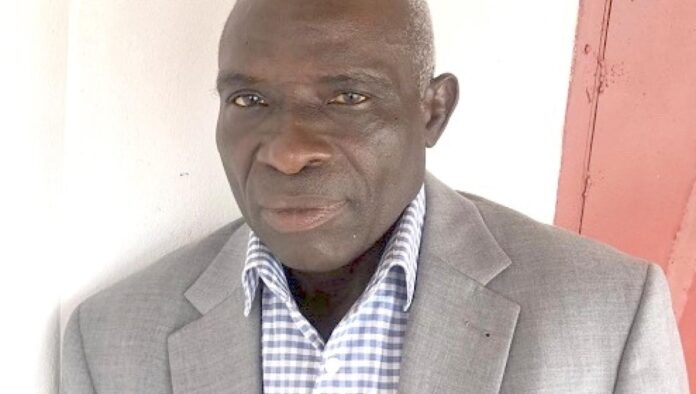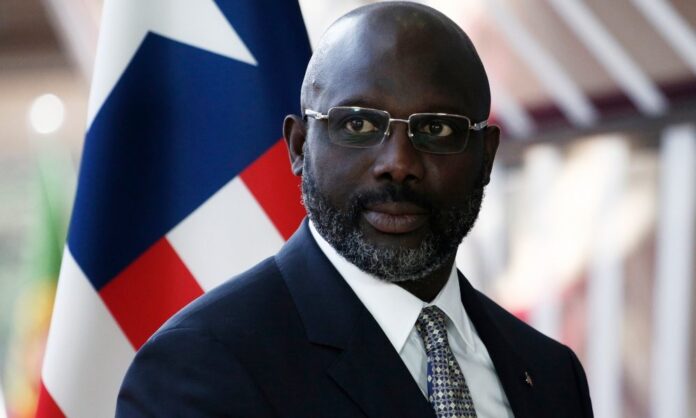The Liberian People’s Party (LPP) condemns in a clear and no uncertain terms the manipulations of the national budget being carried out, mainly supported by the majority membership of the Liberian Legislature. The LPP observes with grave concern that the 2023 National Budget which should have been made publicly available for discussion and debate will be passed without debate, neither has the leadership of both Houses made copies of the budget available not even to members of the Legislature itself as required by law.
The LPP further observes that Representative Thomas Fallah and Senator Morris Saytumah both serving as chairs of their respective budget committees have conspired to keep matters of the budget solely to themselves and from all indications, most of their colleagues especially those facing reelection are in full support of the clandestine and non-transparent passage of the National Budget.
The LPP is additionally informed that the budgets of respective line ministries have been inflated as a cover under which members of the Legislature who provide oversight over line ministries and public agencies can illegally siphon off money to fund their reelection campaigns. From the foregoing it is clear that conspiring legislators are the chief beneficiaries of the largesse derived from the illegal and criminal inflation of the national budget.
Moreover, the LPP is distressed by reports of repeated violations of the 2009 Public Finance Management (PFM) Law by transferring money intended for social programs to personal projects intended to enhance the public image of President Weah who is being allocated US$10Million for another round of political campaigning and jolly-jolly under the guise of a Presidential-county tour and to as well fund the reelection bids of conspiring legislators.
Most importantly, the LPP calls on the Weah administration to honor the 6 December 2019 Memorandum of Understanding (MOU) signed between the Central Bank of Liberia (CBL) and the Government of Liberia (GoL), which provides that “the debts owed by the Government of Liberia to the Central Bank of Liberia is in amounts of US$487Million is to be paid in 180 equal and consecutive monthly installments beginning January 30, 2029.” But then, the key question to be answered is why did the Weah Administration hastily begin making payments in the year 2020 when payment should actually start in 2029.
The obvious answer is because early payment provides a cover under which funds can be diverted to personal use and self-aggrandizement. This is but a cleverly concocted scheme by the Weah Administration, supported by majority Legislators to steal public money for the purpose of perpetrating their pay-for-play scheme and wooing voters through financial inducement to unduly influence elections results.
What else did encourage President Weah administration to pay debts before a due date since the interest rate of 4% is lower than the 15% or more GOL pays to investors who buys Liberia’s treasury bills? Of course fraud, which is not limited to government employees. For instance, in July 2022, Goldman Sachs (i.e., America’s premier Investment Bank) published its report on fraud.
It concluded that fraud “… is an ever-present and growing risk…more than four out five companies (81%) said they were the target of payments fraud in 2019…73% of organizations think the treat level of fraud has increased in the past years, according to (www.theglobaltreasurer.com).
Far back in May of 1976, the United States Security and Exchange Commission (SEC) reported that “…millions of dollars of funds were inaccurately recorded in corporate book and records to facilitate the making of questionable payments.” (www.sec.gov.)
What did Liberia get from CBL in exchange for the $230M debts ($486M in 2020 minus $256M in 2018)? The Liberian government did not receive goods and/or services in exchange of the $230M debts. Rather, according to CDC officials, employees discovered the $230M from accounting and books reconciliation. Did third parties validate the discovery of $230M in USD?
Presumably, let us assume experts authenticated the $230M. Well, did President Weah administration encourage Officials of CBL to enforce item # d of Section 52 of the 2020 revised CBL 1999 Act and transfer the excess distributive earnings to the coffers of GOL? The item # (1)(d) of Part 52 of the 2020 amended CBL 1999 Act states that “…any residual distributive earnings remaining allocations, if any, shall be distributed to the national treasury within four months after the end of the financial as revenue of the government.”
Interestingly, government’s debts owed to CBL had increased to L$99B in 2020 from L$96B in 2019, meaning CBL Officials did not record any debts payments. See pages # 59 and # 67 of the 2020 CBL Audited Financial Statements.
LPP recommends that our Liberian Lawmakers should demand a reimbursement to the Liberian coffers any money transferred as payments of debts to CBL because President Weah failed to enforce item # (d) of Section 52, which stipulates that excess distributive earnings shall be distributed to the National Treasury within four months after the end of the financial year…”







